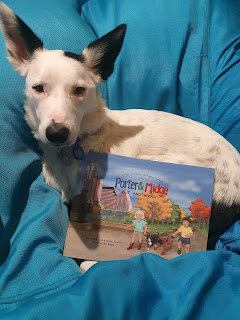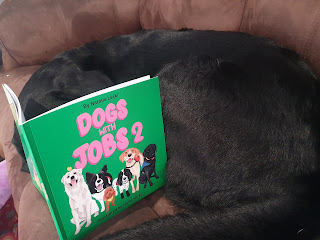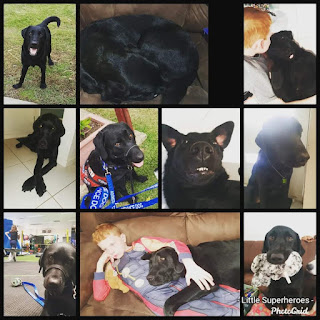Bee is my mini-me. She always has been and most likely, always will be my mini me.
During Bee’s ASD assessment, it honestly felt as though I was discussing my own struggles. I was a very anxious child, teenager, young adult – you get the picture, and at that point I was still on happy pills to settle my own anxiety and ability to completely overthink everything!
I was bullied as a child and teenager because I wasn’t like my peers. I always desperately wanted to fit in but simply couldn’t and didn’t know how. I can remember that I used to study my peers social interactions, how they talked, how they dressed, but for the life of me, I still didn’t understand what they were doing.
As I grew older, I struggled to fit in with the crowd. Social interactions were, and still are, extremely confusing especially if there are several people involved. In crowds, I prefer to stay back and blend in.
I broached the subject several times with the professionals who were doing her assessment and was always told "I can spot an Aspie a mile away!"
I didn’t pursue a diagnosis myself because other than explaining how I see and experience the world, it really wouldn't benefit me. At that point in time, I wanted to put my efforts into assisting my children on their journey. I wanted them to be equipped with the skills that I didn’t have as a teenager so that life could be a little easier for them. Also at that point in time, three out of four in our family had a diagnosis, that's enough acronyms behind our names!!
As time went on, I chose to seek a diagnosis. I was on the path to self-acceptance of who I was, Autism and all. I also realised that like both my children (and Scott,) I too had sensory processing difficulties. The more accepting I was of my own differences, the more my childhood made sense.
I was Autistic and finally proud of who I was as a person, as a wife and as a parent.
My ASD diagnosis has given me a pathway to understanding and has provided clarity to myself and my struggles as a child, teenager, and even now as an adult. It has opened a window of self-reflection, self-understanding, self-empowerment and self-acceptance of myself. Armed with my ASD diagnosis I am finally able to truly like who I was when I was younger and who I am now. I realised that I had been masking my true authentic Autistic self for majority of my life without even realising what I was doing.
My self realisation brought home the glaring fact that girls, when I was in high school, were criminally under diagnosed, and they still are to a point. In fact, individuals who don't present with their Autism traits exactly as what is printed in black and white in the DSM-V, are completely overlooked, discarded and at times misdiagnosed. It served as a valuable lesson for myself, of just how easy it was for a girl like myself to slip through the cracks, unnoticed.
All through school I didn't stand out as needing assistance but I also didn't blend in with the crowd. As a teenager I found it difficult to make myself understood, as well as understanding others. I had difficulty in navigating and making sense of friendships. This internal struggle made me assume that I was unlikeable to my peers, and that perhaps I needed to think of others needs more than my own. The overwhelming need to fit in with my peers was because I knew that I was supposed to. And I wanted to. I would observe and study my peers from a distance, and then attempt to imitate them. But that would usually back fire on me because when the social dynamics became more complex I was completely lost literally and figuratively. I'd be so lost sorting through the social interaction files in my brain, that I'd lose track of the social interaction itself. This then resulted in the mimicking and reflecting peer group behaviour and mannerisms becoming even more difficult. It was a loop that I was stuck in and for the life of me, I could not find my way out.
I was happiest cruising the library, hiding in the science section - science was and still is one of my intense interests. I didn’t enjoy the loneliness but when I was alone, I was out of sight from those around me. Then when I was noticed cruising the library, the bullying would begin. So then an empty classroom became my Sanctuary. I'm sure the teachers knew I was in the classroom, desperately trying to camouflage myself against a back corner, away from the view of my peers. But nothing was ever said, until I was noticed by other students. Then it was back to cruising the library. I'd created a circuit of safe areas where I could hide. The thought of being discovered in my safe areas, caused my undiagnosed anxiety to be even more debilitating.
From as young as I can remember I have always been an over thinker and over analyser! And I'm sure it is something that I will always do. On a side note, being an over thinker and an over analyser did not, and still doesn't help in any way with deciphering social interactions!
As a teenager I assumed, clearly incredibly wrongly, that social interactions would become easier to navigate as I grew older.
When I told people that I was Autistic, the dismissals were thrown at me extremely fast. I was told that I couldn't be Autistic because I make eye contact. I was told that I was too successful in my chosen careers to be Autistic. Someone told me that I wasn't Autistic enough to be Autistic. Apparently I was too articulate in my communication to be Autistic.
I have been asked do I wish I knew as a child that I was Autistic. The answer is a very definite yes. I would have been able to create support strategies for myself. I could have connected with like minded people. Would it have stopped the bullying? Probably not, but at least I would have known that I wasn't the odd one out.
Being a late diagnosed Autistic adult is truly eye opening, It hasn’t changed who I am or any other aspect of my life. It has changed how I view myself. I now allow myself to have moments where I do feel overwhelmed by external sensory inputs and I now know that I'm not being over reactive - it is who I am.


















































